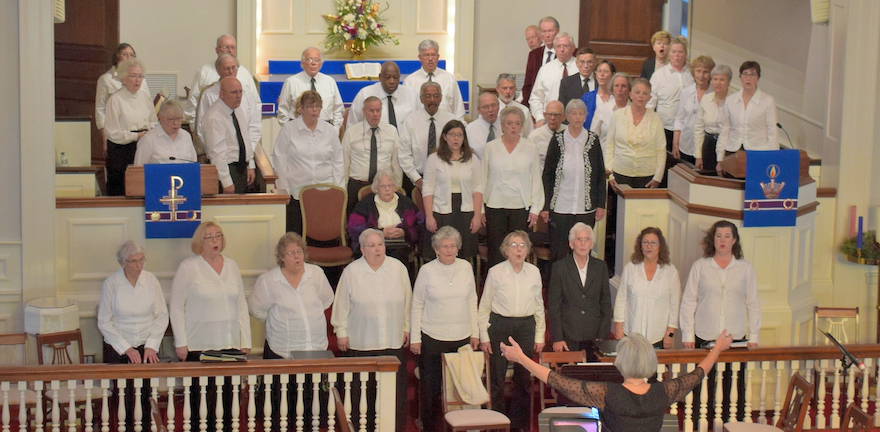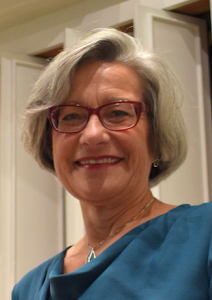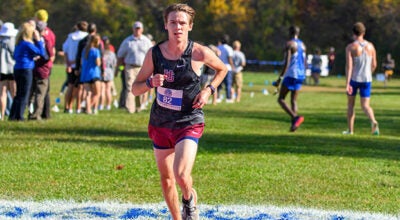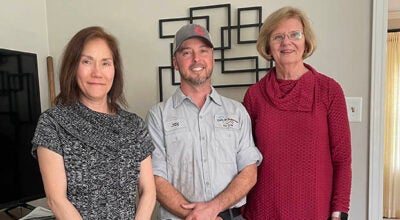Chorale to present ‘From Fauré to Frost’
Published 6:00 am Wednesday, March 11, 2020

- The Commonwealth Chorale in concert.
|
Getting your Trinity Audio player ready...
|
The Commonwealth Chorale will present its spring concerts April 5 at 3 p.m., in Farmville United Methodist Church.
The theme of the concert, “From Fauré to Frost,” follows a different path to the Easter season with Gabriel Fauré’s “Requiem” and “Cantique,” and seven poems by Robert Frost set to music by Randall Thompson.
“I like to have a title for our concerts,” Commonwealth Chorale Musical Director Carol Henderson said. “From Fauré to Frost had a nice ring to it — I thought it would be a good combination.”
Written in 1959, Randall Thompson’s “Frostiana” has been called one of the most important pieces of choral music written since Handel’s “Messiah.”
“Through seven poems of Frost, Thompson opens to us the contours of the countryside, the feel of the earth, the quiet reverie of the storytellers, the deepness of the forest and the softness of the snow,” Henderson commented. “We hear the sounds of the north woods, the sigh in the yellow wood, the water of the pasture spring, the song of the thrush at dusk, the hooves of a horse on soft snow and the wheelbarrow clattering along the lane.”
The music, in other words, follows details of everyday life. Through Frost’s masterful poetry, Thompson took these everyday events and transformed them into a choral masterpiece.
“Any great composer or writer will take something from the past and mix it with something new to create something completely different,” Henderson said.
“Frostiana” opens with Frost’s famous “Road not Taken.”
“There are other settings of ‘The Road not Taken,’ but this one is the best,” the director noted. “At the beginning, for example, the singers are in unison because they’re on one road; later harmonies show the divergence as two roads appear.”
Frostiana’s final poem, “Something Like a Star,” is more complicated.
“I feel like Thompson helps us see metaphors that are not necessarily in words,” Henderson said. “In his music we walk the roadways and pathways, view the city and country life, imagine the flower on the windowsill, hold the smooth lily stem and watch the stars of steadfastness and guiding light. We know the quandary of the unanswered questions of our lives and reflect on the final steadfastness of a star in the night sky.”
As Henderson sees it, Thompson’s “Road not Taken” follows a path that inevitably leads to Easter.
Fauré, the second composer on the program, also had views that echoed the hope of the Easter season. Born half a century before Thompson, Fauré wove that message of faith and hope throughout his “Requiem.”
“Fauré’s long life spanned the late romantic era into the rise of noisy modernism,” Henderson said. “When he was born, Chopin was still composing, and by the time of Fauré’s death, jazz and atonal music were being heard.”
Faure’s “Requiem,” sometimes referred to as gentle, featured a hopeful view of death.
“Fauré saw death as a happy deliverance,” Henderson said. “The qualities of solace, restfulness and even joy amid death abound in his music.”
Fauré’s “Requiem” has been performed on numerous occasions to bring solace after a major catastrophe. Leonard Bernstein chose this requiem for a performance following the assassination of John F. Kennedy. Shortly after the September 11 attacks it was featured in a memorial concert at the University of New York, Potsdam.
“Fauré allows listeners to feel loss but leaves them with an extraordinary sense of comfort and consolation,” Henderson said.
Rounding out the program will be James Erb’s “Shenandoah,” the chorale’s new signature piece.
“A lot of choirs have a signature piece,” the director said. “I had this on my shelf, and it just sort of popped out of the pile. Performed by voices, it is really beautiful.”
Henderson studied sacred music with a concentration in organ and minor in conducting and voice at Westminster Choir College where she earned a Bachelor of Music and Master of music degrees. She is currently an adjunct professor at the Southside Virginia Community College Alberta campus and serves as minister of music at Clarksville Presbyterian Church.
“Shenandoah blended well with the Robert Frost and the countryside theme,” she added. “It just seemed to fit.”
“Shenandoah,” performed a cappella, will conclude a program that takes a slightly different path to the Easter message of faith and hope.
Fauré, who looked at death not as a painful experience but as an aspiration toward happiness above, once commented, “Everything I managed to entertain by way of religious illusion I put into my ‘Requiem,’ which moreover is dominated from beginning to end by a very human feeling of eternal rest and faith.”
The Commonwealth Chorale is pleased to share this message of hope for the Easter season. Concerts are free, and the public is welcome to attend.





